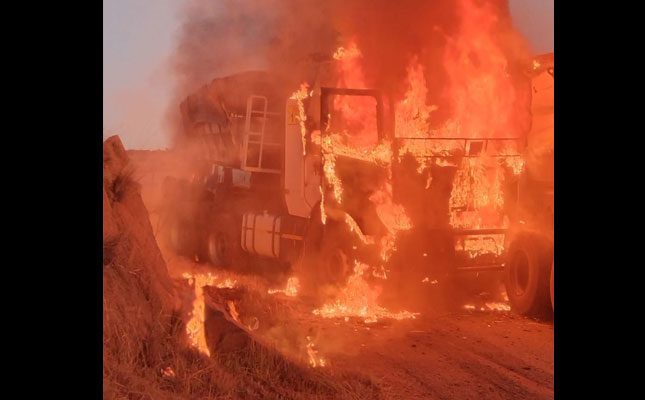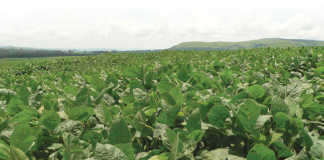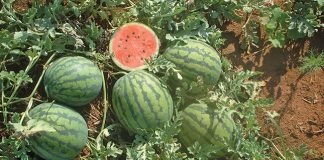
Photo: Supplied by Crime Stop Ukukusiza
Twenty-one trucks have been torched on major routes in KwaZulu-Natal, Mpumalanga and Limpopo (nine, nine and three, respectively) since 9 July.
Twelve people of interest are under investigation and three arrests have been made. National police spokesperson Brigadier Athlenda Mathe said the suspects would appear in court on 17 July.
Police Minister Bheki Cele said in a press conference on 11 June that he believed the attacks were related to business and not connected to the unrest of July 2021. Potential issues included disagreements due to hiring foreign drivers, economic sabotage, and labour and service delivery issues.
Meanwhile, Agri SA said in a statement that it was deeply concerned about the violent criminal attacks, particularly those in KZN and Mpumalanga, in recent days.
Agri SA president Jaco Minnaar said: “In addition to the threat these activities pose to lives, they are a direct assault on the South African economy and a significant risk to food security. In its dire economic situation, South Africa simply cannot afford to surrender vital export revenue to uncontrolled criminal activity.”
The organisation had called on President Cyril Ramaphosa to deploy the SANDF in support of the police to protect major transportation routes.
“Crime Intelligence must also be tasked with investigating who is behind these attacks, and the culprits must be charged and brought to book. Urgency is necessary to protect our truck drivers from acts of violence, but also to safeguard the valuable cargo they transport, which includes agricultural goods. Among the routes protected must be those that connect export harbours to main markets,” Minnaar said.
He added that the rampant criminality on highways deterred international investment.
Expressing similar sentiments, the National African Farmers’ Union (NAFU) said the attacks were disrupting supply chains of food and farming-related goods to the markets. NAFU president Jabu Mahlangu said the union was very angry about the situation.
“The economy is being disrupted, properties are being destroyed, roads are being shattered, lives are being threatened. This destruction […] affects our farmers the most. Farmers have to transport fresh produce overnight so that it reaches […] the markets by 3am. If they are not able to reach [their destinations] and there is some emergency in the morning, that produce is wasted.”
This, he added, resulted in thousands of rands of produce being wasted, threatening food security and placing jobs at risk.
Road Freight Association CEO Gavin Kelly said that while there was currently no cause for concern over food security, the attacks had to be seen as a coordinated attack on the road freight sector.
“The sector carries 80% of the goods that are moved in and around South Africa, as well as for the countries that trade with international markets and use South African ports for import and export. Those who attack the road leg of logistics supply chains need to understand that the long-term effects will bring greater destruction to employment levels, and will result in further job losses as businesses and supporting sectors shrink and trade moves away from South Africa. Without trucks, South Africa stops,” he said.
The South African Transport and Allied Workers’ Union (Satawu) said the attacks were sabotaging the country’s economy. Satawu’s head of communications, Amanda Tshemese, said the economy was already collapsing, and the attacks affected import and export, greatly to the detriment of the country.












